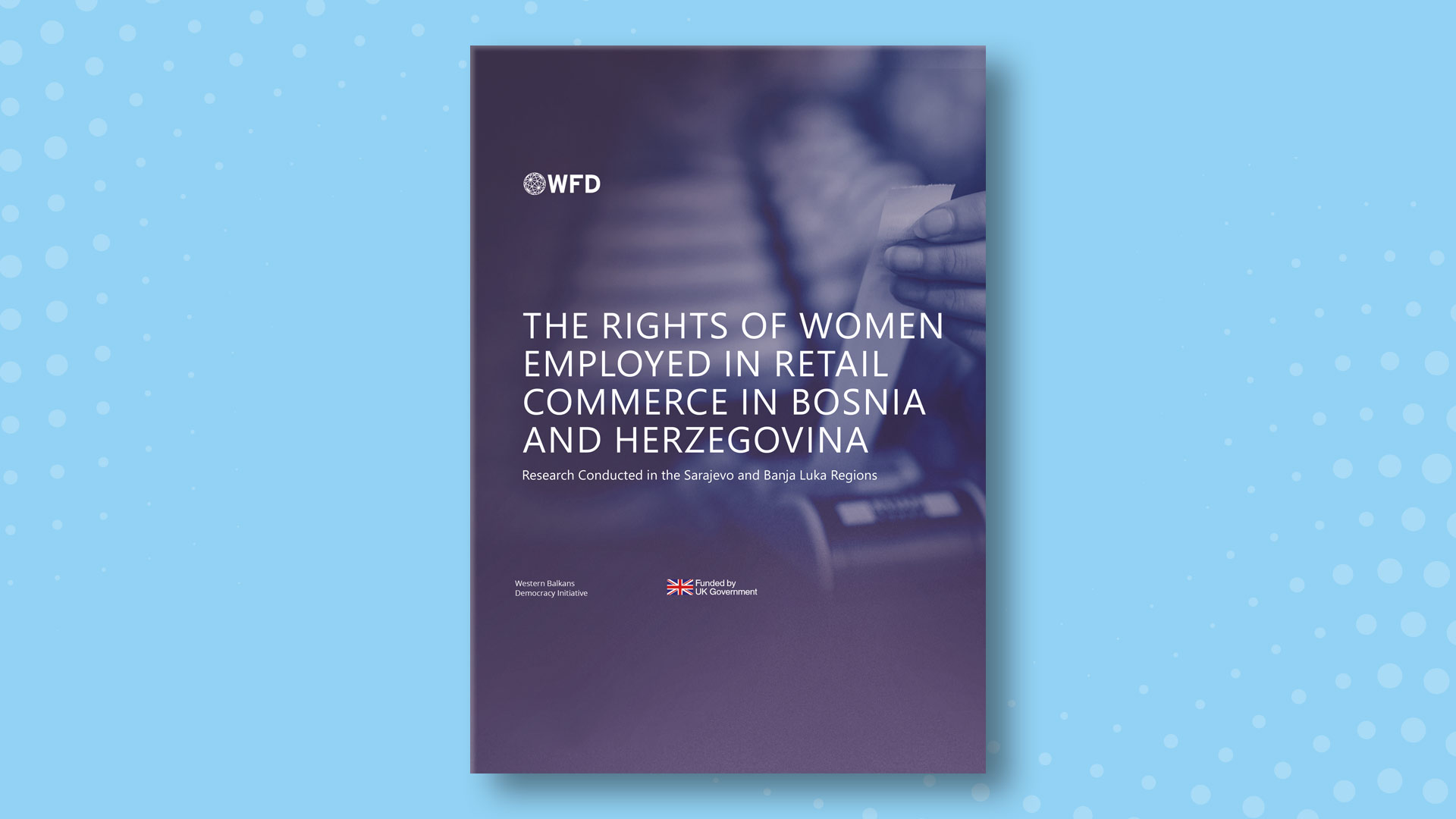Women working in the retail and commerce sector face acute challenges. For example, they work unpaid overtime, or are forced to work during the holidays. Sometimes, they even face mobbing. So far, this is a topic that the government, political parties, or the civil sector have not researched or addressed.
Westminster Foundation for Democracy (WFD) in Bosnia and Herzegovina is working to help solve these problems and address the challenges faced by women employed in the retail and commerce sector.
WFD’s recent research investigated the position of women working in retail and commerce, the ways in which their labour rights are violated, and who is responsible for what.
The study is part of WFD's programme to support women leaders get more involved in formal politics and promote gender-responsible policies in Bosnia and Herzegovina.
The study identified several problems. Firstly, it found that there is a big difference between labour laws and the real situation on the ground. Unpaid overtime, working on holidays and weekends and limited daily breaks a were identified as primary problems for workers in the country.
Among the most vulnerable workers are those in the commerce sector where women make up almost half the labour force, the study shows. The proportion of women is even greater when we look at specific jobs in the sector, such as workers employed as retail salespersons (and in similar jobs).
The research identified violations of workers' rights and concluded that legal solutions were inadequate or were not consistently applied.
As well as an overview of the relevant laws, the study identified the relevant actors involved in these issues; their role, capacities and attitudes; and how they are connected. The study draws on the results of a survey conducted in the Sarajevo and Banja Luka regions during March and April 2019.
The study also proposes measures that could help solve those problems. They include:
- Increase the number of labour inspectors and run campaigns on reporting employers that violate labour laws and regulations;
- Provide inspectors with broader authority and enable them to impose more immediate penalties for violations they find;
- Create a public campaign to inform female workers in the retail commerce sector about their labour rights;
- Intensify activities and the engagement of unions to inform workers of their rights and protect their rights through union organisations;
- Enact a new law on protection at work.
